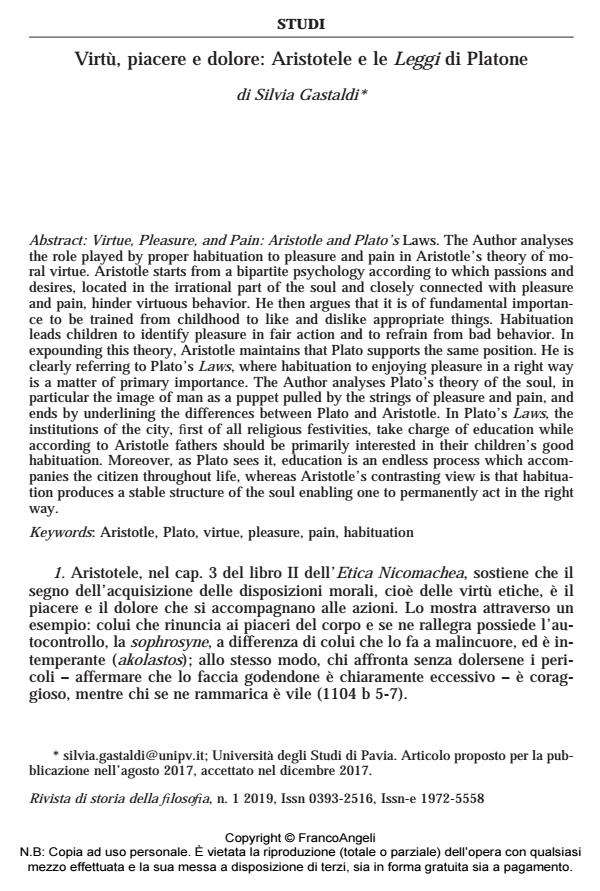Virtue, Pleasure, and Pain: Aristotle and Plato’s Laws.
Journal title RIVISTA DI STORIA DELLA FILOSOFIA
Author/s Silvia Gastaldi
Publishing Year 2019 Issue 2019/1
Language Italian Pages 20 P. 1-20 File size 79 KB
DOI 10.3280/SF2019-001001
DOI is like a bar code for intellectual property: to have more infomation
click here
Below, you can see the article first page
If you want to buy this article in PDF format, you can do it, following the instructions to buy download credits

FrancoAngeli is member of Publishers International Linking Association, Inc (PILA), a not-for-profit association which run the CrossRef service enabling links to and from online scholarly content.
The Author analyses the role played by proper habituation to pleasure and pain in Aristotle’s theory of moral virtue. Aristotle starts from a bipartite psychology according to which passions and desires, located in the irrational part of the soul and closely connected with pleasure and pain, hinder virtuous behavior. He then argues that it is of fundamental importance to be trained from childhood to like and dislike appropriate things. Habituation leads children to identify pleasure in fair action and to refrain from bad behavior. In expounding this theory, Aristotle maintains that Plato supports the same position. He is clearly referring to Plato’s Laws, where habituation to enjoying pleasure in a right way is a matter of primary importance. The Author analyses Plato’s theory of the soul, in particular the image of man as a puppet pulled by the strings of pleasure and pain, and ends by underlining the differences between Plato and Aristotle. In Plato’s Laws, the institutions of the city, first of all religious festivities, take charge of education while according to Aristotle fathers should be primarily interested in their children’s good habituation. Moreover, as Plato sees it, education is an endless process which accompanies the citizen throughout life, whereas Aristotle’s contrasting view is that habituation produces a stable structure of the soul enabling one to permanently act in the right way.
Keywords: Aristotle, Plato, virtue, pleasure, pain, habituation
Silvia Gastaldi, Virtù, piacere e dolore: Aristotele e le Leggi di Platone in "RIVISTA DI STORIA DELLA FILOSOFIA" 1/2019, pp 1-20, DOI: 10.3280/SF2019-001001